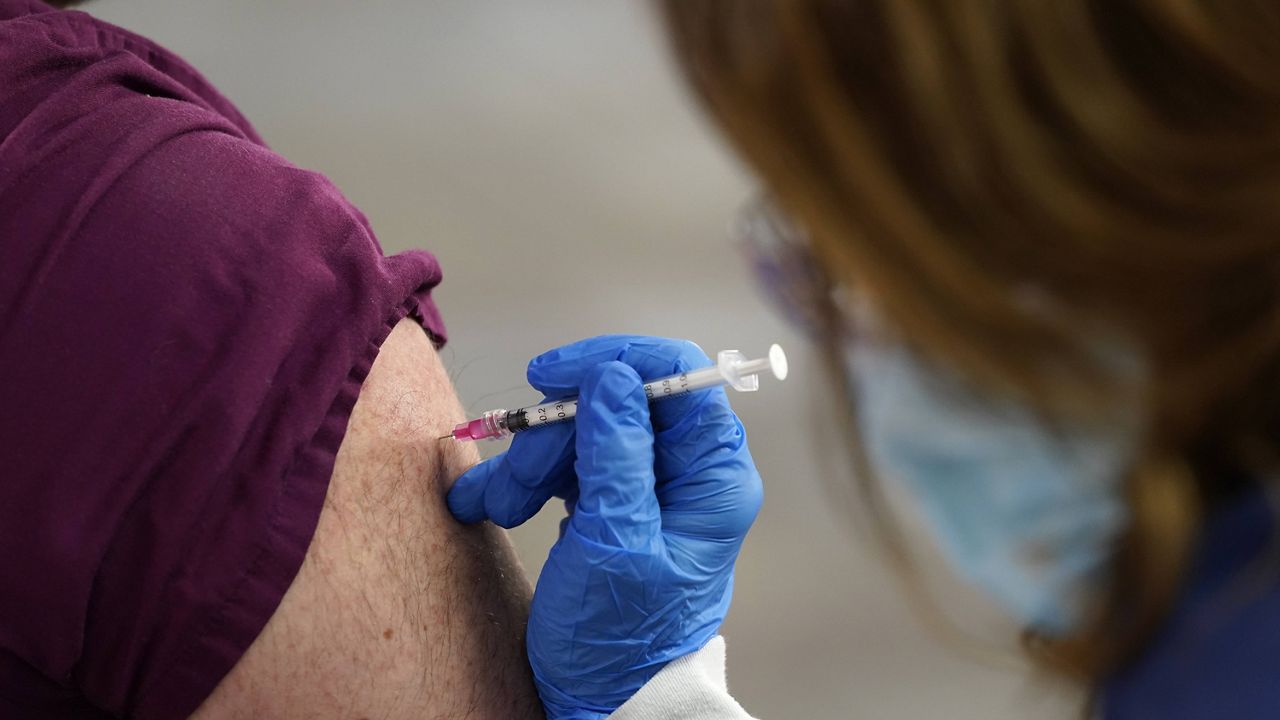The White House laid out in detail Tuesday the types of COVID-19 response programs that could be on the chopping block if Congress does not pass an emergency funding bill soon.
What You Need To Know
- The White House laid out in detail Tuesday the types of COVID-19 response programs that could be on the chopping block if Congress does not pass an emergency funding bill soon
- Last week, Democratic leaders were forced to strip $15 billion for pandemic response from the $1.5 trillion federal spending bill over a dispute about how to pay for the funding
- A senior administration official said Tuesday, “Further inaction will set us back, leave us unprepared and cost us more lives"
- The White House said, without the funding, efforts to vaccinate, boost and treat people, as well as develop next-generation vaccines would be hampered
The Biden administration is seeking a $22.5 billion package. In negotiations over the $1.5 trillion federal spending bill passed last week, Democrats and Republicans initially compromised on $15 billion in pandemic aid, but Democrats were forced to strip that funding from the package after dozens of its members balked at a GOP-driven plan to use American Rescue Plan money earmarked for states to help pay for it.
“It is heartbreaking to remove the Covid funding, and we must continue to fight for urgently needed Covid assistance, but unfortunately that will not be included in this bill,” House Speaker Nancy Pelosi, D-Calif., said in a letter to members at the time.
On Tuesday, the White House warned about the fallout that would come from not approving additional pandemic response funding, saying it would “have severe consequences as we will not be equipped to deal with a future surge.”
“Further inaction will set us back, leave us unprepared and cost us more lives,” a senior administration official told reporters Tuesday.
The Biden administration said, without the funding, it would hurt efforts to secure sufficient vaccine booster doses and develop variant-specific and pan-coronavirus vaccines.
It would also force the government to scale back its allocation of monoclonal antibody treatments to states; halt testing, vaccination and treatment efforts; hamper efforts to identify and assess emerging variants; and hurt global vaccination efforts, officials said.
“This will devastate our ability to ensure these countries can effectively deploy safe and effective vaccines, and leaving large unvaccinated populations worldwide will increase the risk of new deadly variants emerging that could evade our current vaccines and treatments,” the senior administration official said.
In addition, a program reimbursing health care providers for testing, treating and vaccinating Americans without insurance would be cut, the White House said. That would leave providers with the decision of covering the costs themselves or turning away people.
Unless a bill is passed before, the Department of Health & Human Services will begin scaling back the uninsured program next week and eliminate it in April, the White House said.
The warnings come as there are signs that, after two months of declines, another rise in COVID-19 cases in the United States could be on the horizon. In the United Kingdom, cases have spiked by 147% in just a little more than two weeks. Meanwhile, wastewater samples at 37% of the sites the U.S. Centers for Disease Control and Prevention monitors have seen increases of at least 100% since Feb. 24 — some are up more than 1,000%.
The senior Biden administration official suggested the winter omicron surge in the U.S. might have been far worse without funding for the same programs that are now in peril.
“Omicron was the most contagious variant we've ever seen,” the official said. “It led to an unprecedented increase in cases. But because we had the resources, we were able to serve support to Americans that needed it.
“We sent tests to home, masks to pharmacies, over 2,500 federal personnel to states, more treatments to providers. We kept our businesses open and almost all of our kids learning in person. That was because we have resources at our disposal to act and to act quickly. We have a plan to keep it that way, but we need the resources to execute that plan. The failure to provide additional resources soon will have severe consequences in the near term.”
Rep. James Comers, R-Ky., said on Twitter on Tuesday that, “We don’t need to spend billions more on Covid relief,” and in an interview with Fox Business, he cited concerns about $8 billion in previous COVID aid being tied to alleged fraudulent and criminal activities dating back to the Trump administration, according to the Justice Department.



